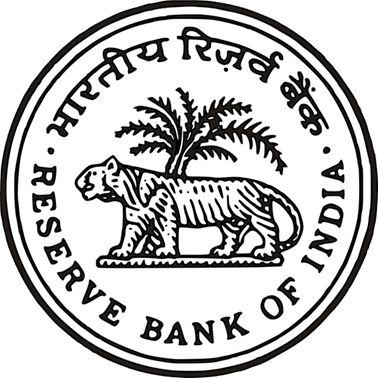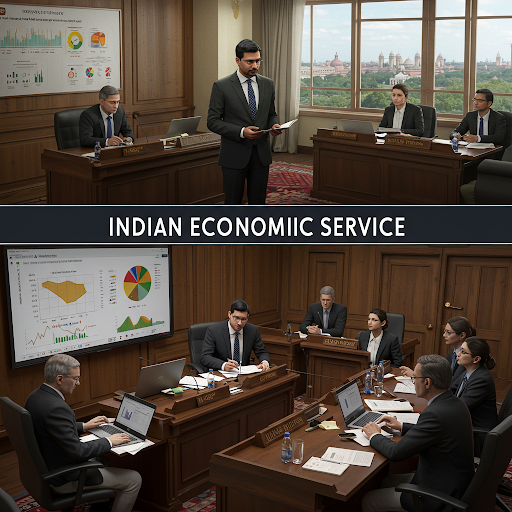A Masters degree in Economics—whether it’s an MA Economics or an MSc Economics—opens the door to some of the most rewarding and intellectually stimulating careers in the field of economics, policy, banking, finance, and research. With advanced knowledge in economic theory, econometrics, statistics, and policy analysis, economics postgraduates have the skills that governments, corporates, and international organisations value highly.
In this detailed guide, we explore the top MA Economics career options and MSc Economics career prospects, explaining the job profiles, how to get them, potential earnings, pros and cons, and who each career is best suited for. Whether you want to join the Indian Economic Service, work as an economist in the corporate sector, or build a career in international policy-making, your Masters in Economics can lead you there.
1. MA/MSc Economics Career Option: Indian Economic Service (IES) Officer
Job Profile:
The Indian Economic Service (IES) is a prestigious Group A Central Government service where economists work with various ministries to shape national economic policies, conduct research, and produce reports that influence decision-making.
How to Get this MA/MSc Economics Job:
Clear the Indian Economic Service Exam conducted by UPSC.
Strong command of microeconomics, macroeconomics, public economics, statistics, and econometrics is essential.
Check our detailed Indian Economic Service Syllabus for guidance.
Potential Earnings:
Entry salary: ₹56,100/month + allowances (~₹1 lakh+ total).
Senior roles can exceed ₹2.5 lakh/month.
Career Progression:
Economic Officer → Director → Joint Secretary → Adviser to Government.
Pros:
High job security and government benefits.
Direct role in shaping the economy.
Cons:
Extremely competitive selection process.
Bureaucratic constraints.
Ideal For:
Students passionate about public policy, governance, and macroeconomic analysis.
2. MA/MSc Economics Career Option: RBI Grade B – DEPR Officer
Job Profile:
The Department of Economic and Policy Research (DEPR) at the Reserve Bank of India – RBI DEPR– employs economists to work on monetary policy formulation, macroeconomic research, and financial market analysis.
How to Get this MA/MSc Economics Job:
Clear the RBI Grade B DEPR Exam.
Focus on econometrics, statistics, and advanced economic theory.
See our RBI Grade B DEPR Coaching details.
Potential Earnings:
RBI DEPR Job starting CTC is around ₹25-30 lakh per annum (in-hand salary is around ₹1.3 lakh per month)
Significant allowances and perks.
Career Progression:
Grade-B → Grade-C → Grade-D → Grade-E → Grade-F
Pros:
Prestigious role in India’s central bank.
High salary and perks.
Cons:
Intense exam preparation required.
Strong focus on quantitative skills.
Ideal For:
Economics graduates with analytical and research skills.
3. MA/M.Sc Economics Career Option: Economist in Corporate Sector & Banks
Job Profile:
Corporate economists provide market forecasts, policy impact analysis, and strategic business insights for banks, investment firms, and multinational corporations.
How to Get this MA/MSc Economics Job:
Apply to private banks, MNCs, and consulting firms.
Internships in market research or data analysis are advantageous.
Potential Earnings:
₹8–15 lakh/year initially.
Senior economists can earn ₹30 lakh+/year in MNCs.
Career Progression:
Analyst → Economist → Chief Economist.
Pros:
High-paying corporate opportunities.
Exposure to global economic trends.
Cons:
High-pressure deadlines.
May involve relocation.
Ideal For:
Students interested in applied economics and business strategy.
4. Data Analyst / Data Scientist (Economics Focus)
Job Profile:
Uses statistical and computational tools to analyze economic data, market trends, and financial risks.
How to Get this MA/MSc Economics Job:
Learn Python, R, SQL, and machine learning tools.
Certifications in data analytics and data science can help.
Potential Earnings:
₹8-24 lakh/year for freshers.
₹50 lakh+/year for experienced professionals.
Career Progression:
Data Analyst → Data Scientist → Senior Data Scientist.
Pros:
High demand in multiple industries.
Excellent growth potential.
Cons:
Requires continuous skill upgrading.
Demanding in terms of technical expertise.
Ideal For:
Tech-oriented economics graduates.
5. MA/M.Sc Economics Career Option: Market Research Analyst
Job Profile:
Studies consumer preferences, industry trends, and competitor strategies to help businesses position products and services.
How to Get this MA/MSc Economics Job:
Work with consulting firms, FMCG companies, or market research agencies.
Skills in Excel, SPSS, or STATA are helpful.
Potential Earnings:
₹4–10 lakh/year.
Career Progression:
Analyst → Senior Analyst → Research Manager.
Pros:
Blend of creativity and analysis.
Work across diverse industries.
Cons:
Frequent deadlines.
May involve repetitive survey analysis.
Ideal For:
Students interested in consumer behaviour and marketing.
6. Public Policy Analyst
Job Profile:
Evaluates economic and social policies for governments, think tanks, and NGOs.
How to Get this MA/MSc Economics Job:
M.A./M.Sc. Economics with a focus on public policy preferred.
Gain internship experience in policy research institutes.
Potential Earnings:
₹5–12 lakh/year.
Career Progression:
Policy Analyst → Senior Policy Advisor → Policy Director.
Pros:
Meaningful work impacting society.
Intellectual engagement.
Cons:
Policy influence can be limited.
Funding constraints in NGOs.
Ideal For:
Students passionate about policy-making and development economics.
7. Academic & Research Careers
Job Profile:
Teach economics at universities or contribute to research projects in economic institutes and think tanks.
How to Get this MA/MSc Economics Job:
Clear UGC NET / JRF Economics Exam for university teaching.
Pursue a Ph.D. for advanced academic positions.
Potential Earnings:
₹6–10 lakh/year initially.
₹15–25 lakh/year for senior professors.
Career Progression:
Research Associate → Assistant Professor → Professor → Dean.
Pros:
Stable and respected career.
Research opportunities.
Cons:
Lower pay than corporate jobs.
Research funding challenges.
Ideal For:
Students passionate about academia and economic research.
8. International Organisations & NGOs
Job Profile:
Work with World Bank, IMF, UN, and other global bodies on economic development projects.
How to Get this MA/MSc Economics Job:
Expertise in development economics and global trade.
Relevant experience in policy or development projects.
Potential Earnings:
₹12–30 lakh/year depending on role.
Career Progression:
Economist → Senior Economist → Project Director.
Pros:
Global exposure and networking.
Work on high-impact projects.
Cons:
Highly competitive.
Frequent travel and relocation.
Ideal For:
Students aiming for global economic careers.
Conclusion
Whether you pursue an MA Economics career option in public service, corporate strategy, data analytics, academia, or global policy, a Masters in Economics offers vast opportunities for career growth.
If you are preparing for government economist roles like IES, RBI DEPR, or UGC NET Economics, check out:
With the right planning, internships, and skill development, your economics masters career can be both financially rewarding and intellectually fulfilling.





